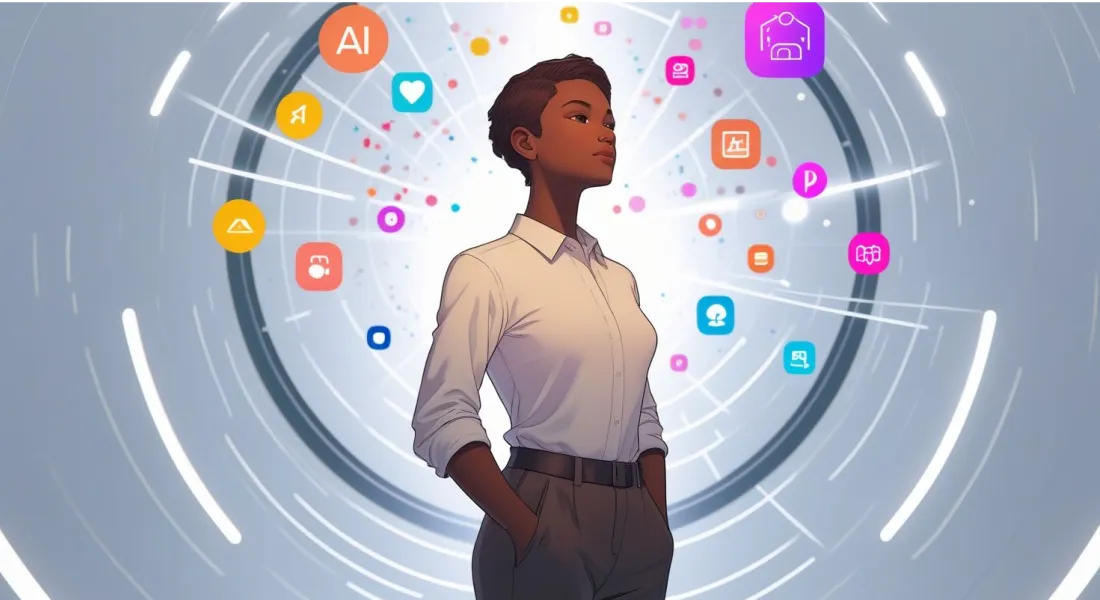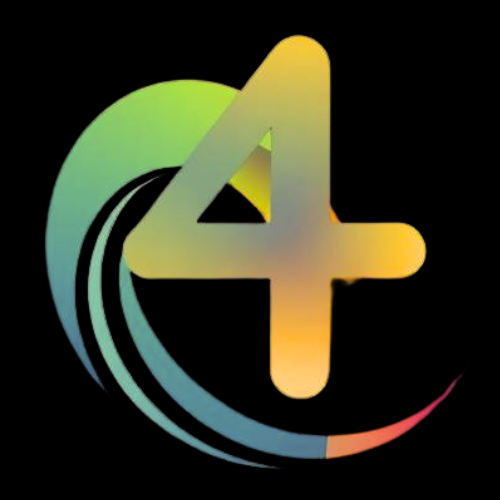What Do You Do When Your Job Disappears and No One Says “You’re Hired” Anymore?
By:
Miha Ella
On
18/04/2025Reading time:
0 min
Summary:
Millions of jobs aren’t being replaced — they’re being quietly erased by automation and AI. But while the old roles vanish, new ones are rising that blend technology with irreplaceable human insight. From prompt engineers to virtual space designers, the future belongs to those who adapt with purpose. This isn’t the end of work. It’s the beginning of a different kind of freedom — if you know where to start.
Introduction
There was a time when things made sense.
You studied, you showed up, you played by the rules.
And at the end of all that effort, someone — somewhere — would say the words that made it all feel worthwhile:
“You’re hired.”
That sentence was more than approval. It meant structure. Security. A place in the world.
It meant the system saw you.
You didn’t need a personal brand. You didn’t need to build an audience or automate a funnel.
You just needed to be decent, present, consistent.
And someone would make space for you.
But what happens when the system changes and doesn’t tell you?
What do you do when your job isn’t taken by someone younger or cheaper —
but simply disappears, absorbed by a machine that doesn’t get tired, doesn’t complain, and doesn’t need a holiday?
What happens when no one fires you —
because you were never replaced?
You were deleted.
No announcement.
No email.
No explanation.
Just a system update that quietly stops recognizing you.
And suddenly, all the things you once did — the calls, the forms, the greetings, the patience —
become invisible.
Unpaid. Uncounted. Unneeded.

Discover how disappearing jobs are giving rise to new, human-centered roles you can start learning today.
They Didn’t Get Fired. Their Jobs Just Stopped Existing
No one held a vote.
No one made a big statement.
But the workforce is being rewritten.
And not everyone is being copied into the new file.
Here are the roles fading, not because people failed, but because the world stopped seeing their value.
Bank Tellers
Once the trusted point of contact in every financial institution, they helped people solve real problems with real voices. Today, banking happens through apps — faster, cleaner, faceless. Branches close because fewer people come in. Trust was once built at a desk. Now, it’s just a notification on your phone.
Retail Cashiers
They stood between people and products, offering service, speed, even a smile. Now, self-checkout, tap-to-pay, and AI surveillance systems do the same job with zero human interaction. You don’t say “thank you” to a screen. You just walk away.
Ticket Agents and Travel Clerks
At train stations, airports, and terminals, these workers once handled the chaos — rerouting, rebooking, and responding in real time. Now, algorithms adjust your itinerary, bots send notifications, and your phone becomes the new front desk. There’s no one to ask. There’s only the system to accept.
Postal Clerks
Letters became emails. Payments became apps. Packages became QR codes.
Where once there was a queue, now there's a drop box.
The human touch behind the counter has been replaced with labels, tracking numbers, and silence.
Data Entry Operators
These workers turned chaos into structure — formatting, verifying, cleaning, correcting.
Now, AI models read documents, fill forms, extract insights, and do in seconds what once took entire shifts.
Accuracy increased. Speed multiplied.
But the job? Gone.
Administrative Assistants
Once the heart of any office, they knew the people, the rhythms, the quiet politics of a workplace.
Now, the calendar schedules itself, emails get auto-drafted, and AI plugins manage the inbox better than most executives ever could.
No one replaced them.
Automation just absorbed their presence.
These jobs weren’t unimportant.
They weren’t low-skilled.
They weren’t failures.
They were, for decades, the glue of modern work.
But glue isn’t needed in a machine that runs on isolation, speed, and silence.
They didn’t lose their place.
The place itself vanished.
Losing Your Job Isn’t the End. Here’s What Comes After.
When jobs vanish, the instinct is fear. Loss. Shame.
We ask what we did wrong — when the only wrong thing was trusting a system that was never built to evolve with us.
But beneath that collapse, something else is emerging. Quietly. Relentlessly.
New roles.
New economies.
New ways of being needed — not by companies, but by communities, movements, and ideas.
You don’t need anyone to say, “You’re hired.”
You can hire yourself.
Ten Jobs That AI Can’t Replace — And You Can Start Learning Now
These roles aren’t futuristic or hypothetical. They exist now, and they are growing — because they can’t be easily replaced. Not because they’re too technical, but because they’re too human to be automated.
Prompt Engineer
A prompt engineer teaches machines how to understand us. Not with code, but with clear, creative instructions. They design the questions and directions that guide AI systems to generate useful content, accurate answers, or unique outputs. This role sits at the intersection of communication and computation — it’s about knowing how to think clearly and express it with precision. In a world where AI is everywhere, the ones who know how to talk to it properly will lead.
Automation Strategist
This person sees a workflow and asks: what part of this can be done without human exhaustion? They use simple tools — no-code platforms, AI dashboards — to automate boring, repetitive tasks so that real people can focus on what matters. It’s not about eliminating jobs. It’s about eliminating inefficiency. Whether it’s in small businesses or corporate teams, automation strategists are becoming the hidden backbone of smart productivity.
Synthetic Content Creator
AI can generate images, voices, music, and video. But it still can’t tell a real story. That’s where this role comes in. A synthetic content creator uses these tools to build rich, emotional, purposeful content — guided by human vision. Think of someone who produces a brand video using AI visuals and voiceovers, but with a message only they could write. This job blends art and tech, and it will define the future of media creation.
AI Ethics Officer
More than ever, we need people who ask not just “Can we do this?” but “Should we?” AI ethics officers make sure that technology respects people, communities, and consequences. They assess the risks, design policies, and protect against the abuse of automation. This role is crucial in governments, schools, companies — anywhere tech might cross ethical lines.
Data Storyteller
Data is everywhere, but understanding it is rare. A data storyteller reads numbers like others read novels. They take charts and spreadsheets and turn them into meaningful, actionable narratives. Whether it’s in marketing, public health, or climate research, their job is to turn noise into knowledge — and then speak that knowledge in a way that lands.
Behavioral Designer
This is the person who understands why people click, stop, buy, quit, or stay. They use psychology to build digital environments that feel intuitive, safe, or motivating — whether it’s a budgeting app, a mental health platform, or a loyalty program. Not manipulation. Not trickery. Just design that respects the real human behind the screen.
Digital Learning Architect
The old models of learning are falling apart. People want short, engaging, meaningful learning — and they want it now. Digital learning architects build those systems: online courses, interactive lessons, gamified experiences that actually teach, not just inform. They are teachers of a new kind — not locked in classrooms, but present wherever learning is needed.
Human–AI Team Facilitator
This role didn’t exist five years ago. Now, it’s critical. These facilitators help companies and communities adapt to AI without panic or resistance. They explain tools, build hybrid workflows, and guide people through the emotional journey of change. It’s part coaching, part training, part diplomacy — and all about keeping humans in the loop.
Solopreneur Architect
You don’t need a team of ten to build a real business anymore. The solopreneur architect helps individuals set up automated, smart, AI-powered one-person businesses. Whether it’s consulting, writing, digital products, or coaching — these businesses are lean, agile, and real. No gatekeepers. Just good systems and better thinking.
Virtual Space Designer
Not everything happens in physical space anymore. From therapy to education to art, life is happening in digital rooms. The virtual space designer creates those rooms. They build environments that feel real, safe, immersive — using AR, VR, and 3D platforms. It’s not about tech. It’s about experience, emotion, and connection.
You’re Not Too Late. But You Need to Begin Now.
Not by going back to school.
Not by waiting for permission.
You begin with one skill. One habit. One belief: that the future doesn’t belong to the lucky — it belongs to the ready.
You were never meant to beg for relevance.
You were meant to create it.
So no — no one’s saying “You’re hired” anymore.
And maybe that’s exactly what needed to change.
Because this time, the voice that matters most is your own.
Still Stuck at Step Zero? That’s Where Every Future Begins.
You don’t need to know everything.
You don’t need to wait for someone to choose you.
You just need a first step that actually works — without fluff, false promises, or wasted time.
Download the free guide now and learn:
What skills truly matter in the age of AI
How to start building your future without burning out
What tools to use (even if you’re not “techy”)
Why waiting is the only thing that doesn’t scale
No more noise. No more excuses. No more asking for permission.
Because when the world says “you’re no longer needed,”
you’ll look it in the face and say:
“That’s fine. I’ve already hired myself.”
→ Download your free guide now!
Ask us anything — here’s what we usually get
Q: Do I need a degree to start one of these future-proof careers?
A: No. Most of the emerging roles — like prompt engineering or automation strategy — are skill-based, not diploma-based. What matters is your ability to learn fast, adapt, and use available tools effectively. Many of these skills can be learned in weeks, not years.
Q: I’m not tech-savvy. Can I still work with AI?
A: Absolutely. Many high-demand roles involve creativity, empathy, communication, and systems thinking — not programming. You don’t need to code to use tools like ChatGPT, Notion AI, or Canva AI. Most platforms are designed for intuitive, real-world use.
Q: Can I really build a business on my own using AI tools?
A: Yes. Solopreneurship is on the rise — and AI tools make it possible to build, automate, and grow without needing a large team or startup funding. With the right structure, a one-person business can become scalable and sustainable.
Q: What’s the very first step if I feel lost or stuck?
A: Start with one simple action: download the free starter guide included in this article. It gives you a clear, no-fluff breakdown of what to learn, what tools to try, and how to build your first small system — even if you’re starting from zero.
Q: How can I stay ahead of AI without being overwhelmed?
A: Focus on mindset before skillset. Learn how to think in systems, test small ideas, and stay curious. Follow sources like The 4th Wave, experiment with tools weekly, and prioritize progress over perfection.
Subscribe to our newsletter
Stay in touch and be the first to be informed with the latest news!

AI Agents vs. Human Users:Who Will Dominate the App Space by 2030?
Miha Ella
11.01.2025
TECHNOLOGY – The rise of AI agents is redefining human-computer interaction by automating tasks and transforming industries. From streamlining e-commerce and healthcare to enhancing education, these autonomous systems promise groundbreaking changes in efficiency and accessibility. By 2030, AI agents are expected to dominate app usage, offering collaborative solutions rather than competition with humans. However, their growth raises ethical challenges around transparency, accountability, and equity, marking a pivotal moment in the evolution of technology and the future of work.

AI Agents: Revolutionizing Industries or Overhyped Hype? A Balanced Look at the Future
Miha Ella
15.02.2025
Artificial Intelligence (AI) is no longer a futuristic concept—it’s already here, reshaping industries, workflows, and even daily life. From automating customer service to optimizing supply chains, AI agents are being heralded as the next big revolution. But is this transformation as inevitable and beneficial as many claim? Or are AI agents still in their infancy, prone to inefficiencies, security risks, and ethical concerns?
In this article, we’ll explore both perspectives—the excitement and the skepticism—to provide a clear, balanced view of AI’s impact on business and society. By understanding both sides, we can prepare for a future that is not just AI-driven, but human-guided.

From Research to HR: The AI Revolution You Didn’t See Coming
Miha Ella
14.03.2025
AI is transforming research, personalization, and HR, each with distinct impacts on automation and decision-making. While research AI enhances knowledge retention without replacing human judgment, personalization AI guides users through tailored content but raises privacy concerns. Meanwhile, HR AI automates workforce processes, reducing administrative burdens but introducing ethical risks like bias and lack of transparency. As AI continues to evolve, balancing automation with human oversight will be critical to ensuring ethical, user-driven applications across industries.
